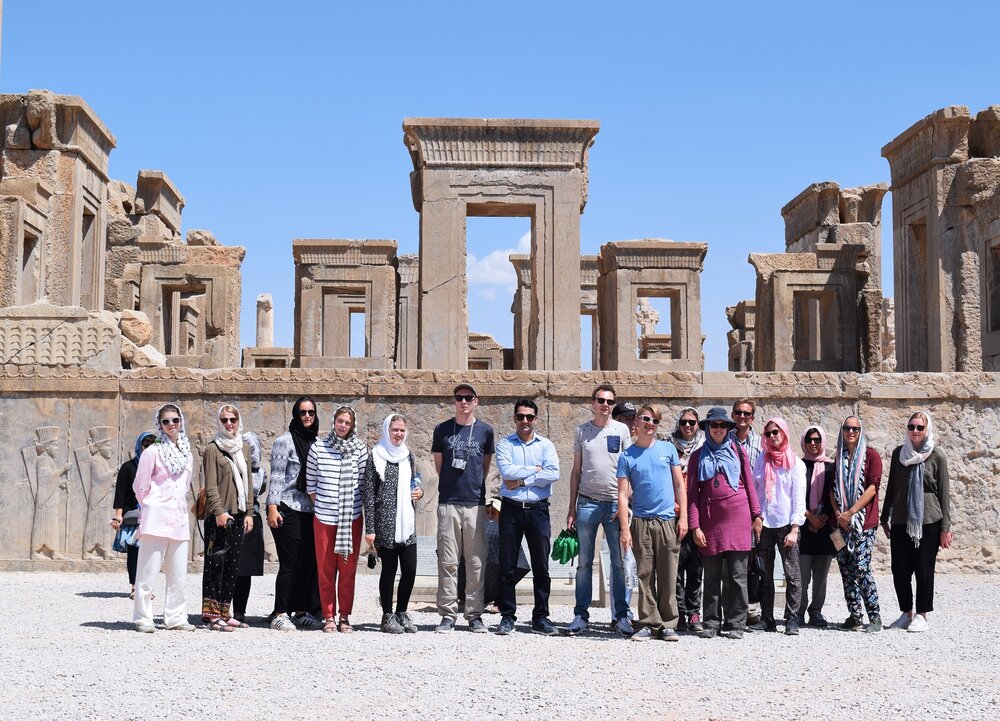COVID-19 cuts foreign arrivals in Iran by 15.8%: UNWTO

TEHRAN – Iran has suffered an average 15.8 percent fall in foreign arrivals during the first three months of 2020 compared to the same period last year, according to data released by the United Nations World Tourism Organization (UNWTO) that analyzes impact of the COVID-19 on international tourism.
Iran hosted 666,550 foreign travelers in January 2020 while the figure was 497,750 people in the same month last year, according to UNWTO’s report titled “INTERNATIONAL TOURISM AND COVID-19.
The figures were also 673,180 and 606,250 for February 2020 and February 2019 respectively, the report said.
And finally, the Islamic republic, like many other countries across the globe, faced more decline in foreign arrivals in March as it hosted 116,350 tourists this year compared to 625,540 in the same month last year.
The worldwide outbreak of COVID-19 has brought the world to a standstill, and tourism has been the worst affected of all major economic sectors. Against a backdrop of heightened uncertainty, up-to-date and reliable information is more important than ever, both for tourists and for the tourism sector.
Back in March, the UN specialized agency for tourism announced that it expected international tourist arrivals would be down by 20 percent to 30 percent in 2020 when compared with 2019 figures.
An expected fall of between 20-30 percent could translate into a decline in international tourism receipts (exports) of between $300-450 billion, almost one-third of the $1.5 trillion generated in 2019.
“Taking into account past market trends, this would mean that between five and seven years’ worth of growth will be lost to COVID-19. Putting this into context, UNWTO notes that in 2009, on the back of the global economic crisis, international tourist arrivals declined by 4 percent, while the SARS outbreak led to a decline of just 0.4 percent in 2003.”
UNWTO Secretary-General Zurab Pololikashvili said: “Tourism is among the hardest hit of all economic sectors. However, tourism is also united in helping to address this immense health emergency – our first and utmost priority – while working together to mitigate the impact of the crisis, particularly on employment, and to support the wider recovery efforts through providing jobs and driving economic welfare worldwide.”
Pololikashvili added that, while it is too early to make a full assessment of the likely impact of COVID-19 on tourism, it is clear that millions of jobs within the sector are at risk of being lost. Around 80 percent of all tourism businesses are small-and-medium-sized enterprises (SMEs), and the sector has been leading the way in providing employment and other opportunities for women, youth, and rural communities.
Alongside this new assessment, UNWTO underlines tourism’s historic resilience and capacity to create jobs after crisis situations, while also emphasizing the importance of international cooperation and of ensuring the sector is made a central part of recovery efforts.
Since the start of the current crisis, UNWTO has been working closely with the wider United Nations system, including directly alongside the World Health Organization (WHO) to guide the sector, issuing key recommendations for both high-level leaders and individual tourists. To better consolidate and strengthen the response, the Organization has established the Global Tourism Crisis Committee.
Earlier this month and in response to the coronavirus pandemic, Iran’s Ministry of Cultural Heritage, Tourism, and Handicrafts announced new guidelines and instructions to ramp up the safety of travels across the country ahead of anticipated travel surge in the ancient country.
Some experts expect Iran to achieve a tourism boom after coronavirus contained, believing its impact would be temporary and short-lived for a country that ranked the third fastest-growing tourism destination in 2019.
Latest available data show eight million tourists visited the Islamic Republic during the first ten months of the past Iranian calendar year (started March 21, 2019).
AFM/MG
Leave a Comment